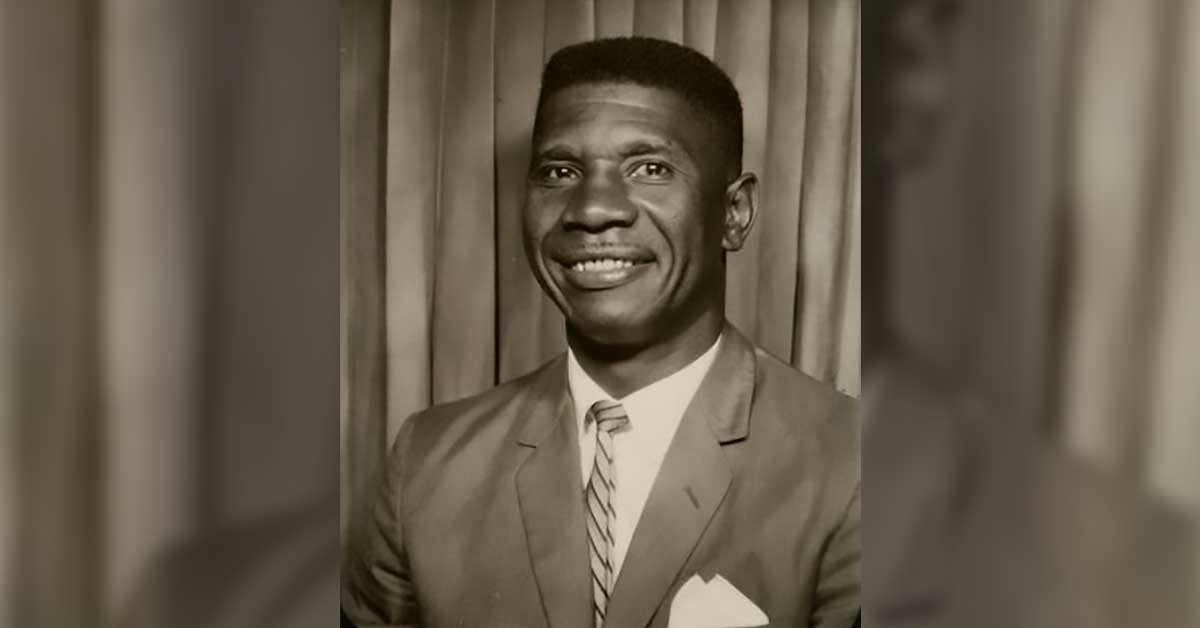Editor’s note: Mississippi Today and the Mississippi Humanities Council cosponsored an event – “Reimagining Statuary Hall” – on Sept. 18 at The Station in Fondren. Several speakers suggested accomplished Mississippians to represent the state in Statuary Hall at the U.S. Capitol. Currently, statues of staunch segregationists Jefferson Davis and J..Z. George represent Mississippi. What follows is Mississippi Today investigative reporter Jerry Mitchell’s pitch from the event.

Medgar Evers dove onto the sand at Normandy. In the weeks following the D-Day invasion of June 6, 1944. He joined a million soldiers fighting to expand the beachhead. The Luftwaffe strafed and bombed them, hoping to push them back into the sea.
He was also part of the Red Ball Express, which provided fuel, food and other critical supplies as Allied troops pushed back the German forces.
As Allied forces freed more of France from Nazi occupation, Evers enjoyed life without the color line. He could eat in any restaurant he desired. He even fell in love with a French girl.
After battling the Nazis, he returned to Mississippi and fought racism all over again in the form of Jim Crow, which barred Black Americans from restaurants, restrooms and voting booths. When he tried to vote in his hometown of Decatur, Mississippi, he and other Black war veterans were turned away by an armed white mob.
After graduating from Alcorn College, he worked for his mentor, Dr. T.R.M. Howard, and was involved in passing out bumper stickers across the Delta that read, “Don’t Buy Gas Where You Can’t Use the Restroom.”
In January 1954, he tried to enroll at the University of Mississippi School of Law — only to be turned away. NAACP officials considered taking up his case but were so impressed with him they decided instead to hire him as the first field secretary for the Mississippi NAACP.
He investigated violence against African Americans, including the 1955 assassinations of the Rev. George Lee and Lamar Smith, who were killed because they helped Black Mississippians register to vote.
He worked with Dr. Howard on the lynching of Emmett Till and helped find new witnesses.
The economic threats and violence became so great that Dr. Howard and others left Mississippi, but Medgar Evers stayed.
He helped James Meredith enroll at Ole Miss, and he logged 40,000 miles a year traveling the roads, sometimes flooring it past 100 to escape those hell-bent on harming him.
His telephone rang at all hours with threats. Some were short and emphatic: “We’re going to kill you, N-word.” Others described how they planned to torture him.
Evers told a CBS reporter, “They say I’m going to be dead soon, that they’re going to blow up my house, that they’re going to blow my head off. If I die, it will be a good cause. I’m fighting for America just as much as the soldiers in Vietnam.”
After the white mayor of Jackson chastised the civil rights movement in Mississippi in spring 1963, Evers won his FCC bid for “equal time” to respond. He talked on television about the mistreatment of Black Mississippians and in so doing he became even more of a target. The Evers’ home was firebombed.
Hours after President Kennedy told the nation that the grandchildren of those enslaved are “not yet freed from the bonds of injustice,” Evers was shot in the back as he stepped onto his own driveway in Jackson, Mississippi. His wife, Myrlie Evers, heard the shot, ran outside, saw the blood and screamed. When the children heard the scream, they ran outside and saw their father.
“Daddy, get up,” his 8-year-old daughter, Reena, said. “Daddy, get up.”
He never did.
On Evers’ birthday in 1964, Congress passed the Civil Rights Act
Three decades later, his family finally saw his assassin convicted.
“All I want to say is, ‘Yay, Medgar, yay!’” Myrlie Evers declared as she wiped away tears. “My God, I don’t have to say accused assassin anymore. … what he failed to realize was that Medgar was still alive in spirit and through each and every one of us who wanted to see justice done.”
That justice inspired others. To date, 24 men have been convicted in civil rights cold cases.
A year after Evers’ killer went to prison, Myrlie Evers became chairman of the national NAACP and helped rescue the civil rights organization from the brink of bankruptcy.
She continues to break boundaries. She became the first lay person to deliver the inaugural invocation at Barack Obama’s second inauguration.
She cheered when Mississippi removed the Confederate emblem from the state flag, and she told me the reason we keep repeating its history is we don’t know our history.
Putting Medgar Evers in Statuary Hall would honor a fallen soldier in the war against hate and would help ensure that we know our history so that we don’t repeat it.
READ MORE: Other Southern states removed white supremacist statues from Washington. Will Mississippi?
READ MORE: Mississippi’s Jefferson Davis statue has new neighbor in U.S. Capitol: Arkansas civil rights leader

